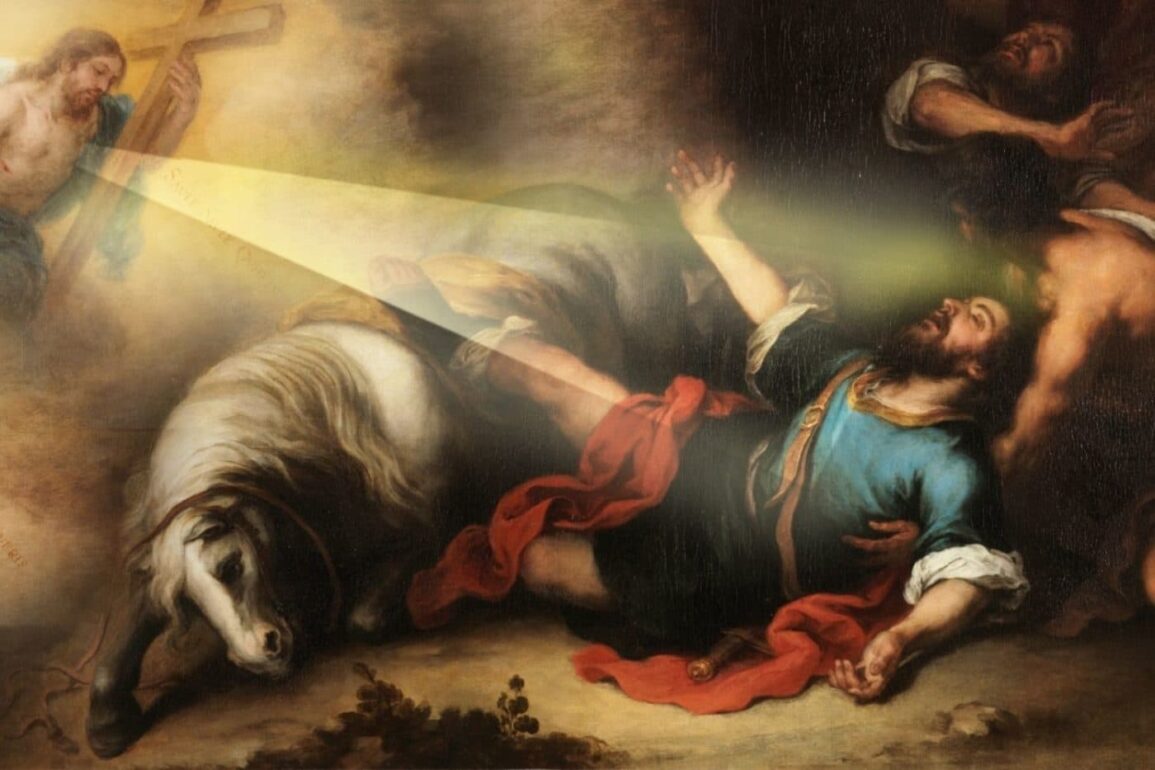The priest and journalist Javier Peño Iglesias shares with Exaudi readers his article titled “The miracle of the conversion of Saint Paul” about the holiday that is celebrated today, January 25.
***
Christians celebrate the conversion of Saint Paul every January 25, on whose feast day we conclude the octave of prayer for Christian unity. It is as important for us as it responds to the deepest desire of Christ’s heart, expressed at the Last Supper: That we may all be one, as the Father and He are one (Jn. 17, 21-23).
The figure of Saint Paul is fundamental for Christians since he is the first great evangelizer for the Gentiles, that is, for non-Jews. In a certain sense, we can say that he is our father in faith, almost in the same way that Abraham is, as we remember in the Roman Canon of the Holy Mass. The apostolate of Saint Paul opened the doors of salvation to us in a new way and in it, we recognize that we no longer have to insert ourselves into God through the pact with Noah (in fact, in the Jewish world there is a current, called ‘Noachid ‘, which encourages the conversion of non-Jews through the recognition of these laws that come from the time of God’s covenant with Noah), but in the New Covenant in Jesus Christ.
We know, because he himself says so in Philippians 3:5, that he was circumcised eight days after birth, that he was of the lineage of Israel and the tribe of Benjamin. Furthermore, regarding the Law, he was a Pharisee. That is, he was an observant person concerned with pleasing God. And this is not trivial, because it opened the doors to being able to recognize the Truth that Jesus Christ brings, after the famous episode of his conversion, which Saint Luke, his disciple, narrates in the Acts of the Apostles and which he himself tells in the aforementioned letter to the Philippians and, more briefly, in the letter to the Galatians.
It is precisely in this last one where we find, in my opinion, the key to reaching the successful conclusion of his conversion: after the episode on the road to Damascus and the reception by some followers of the Lord Jesus, he left for Arabia to, later, return to said city. And it is in the third year when he travels to Jerusalem to meet Cephas, with whom he will stay fifteen days.
As we said, this impasse of time is fundamental, since it allowed the old Saul to finish dying so that the new Paul could emerge from the depths of his soul. With his sin, with his particular sting, whatever we want, but a man determined to love Jesus Christ above all things and live the faith in the Church, to the point that he does not hesitate to leave everything permanently to bring the Good News to all parts. In those years, surely, he was maturing what was happening to him, he was understanding better, just as he recognizes in the Ephesians, how wide, long, high and deep the love of Christ is.
Today, in this culture of immediacy, of clicking, of emotion above all thinking, wanting and feeling, it is essential to reclaim this process of conversion in the time that Saint Paul had. And it was not a matter of three years, but it continued throughout life! It is even beautiful to see how one of his disciples, Saint Luke, follows in his footsteps in diligently investigating everything related to the life of Jesus (Lk. 1, 1-4). In the disciple, many of us always see a trace of the master, and there is no doubt that Luke must have been infected by Saint Paul’s determination to know the Lord a little more and better every day. For this reason, Saint Paul and his disciples are an example that conversion is a process that lasts a lifetime and that requires permanent facing the Lord: in prayer, in the liturgy, in study, in dealing with one’s neighbor. , etc.
When we sometimes feel that we want a conversion too quickly and become discouraged when we do not obtain it, we must remember the life of Saint Paul. And let us not forget the clarity of the parable of the sower that Jesus told us and that all the Synoptic Gospels contain! It is the work of the Tempter to believe that a Christ-like Love is possible without effort.
For all this, let us ask the apostle on this feast for firmness in the decision to follow the Lord always and everywhere. To be his faithful disciples so, when his grace dictates, to be his apostles wherever we are. Let us persevere, then, it is the way to save our souls, just as the Lord told us after proclaiming, nothing more and nothing less, than the destruction of the Temple of Jerusalem and just before heading to the Cross (Lk. 21, 19). We end with Saint Augustine’s plea to the Lord in the confessions, which we make our own: “Convert us, and we will convert.”










